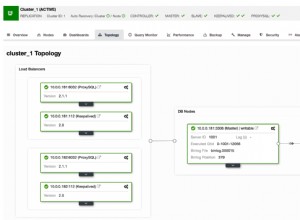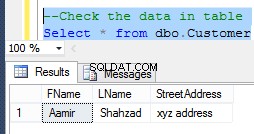Ich habe mich entschieden, dem Postgres-Ansatz so direkt wie möglich zu folgen, und bin auf die folgende Migration gekommen.
from alembic import op
import sqlalchemy as sa
old_options = ('nonexistent_executable', 'signal', 'success', 'timed_out')
new_options = sorted(old_options + ('output_limit_exceeded',))
old_type = sa.Enum(*old_options, name='status')
new_type = sa.Enum(*new_options, name='status')
tmp_type = sa.Enum(*new_options, name='_status')
tcr = sa.sql.table('testcaseresult',
sa.Column('status', new_type, nullable=False))
def upgrade():
# Create a tempoary "_status" type, convert and drop the "old" type
tmp_type.create(op.get_bind(), checkfirst=False)
op.execute('ALTER TABLE testcaseresult ALTER COLUMN status TYPE _status'
' USING status::text::_status')
old_type.drop(op.get_bind(), checkfirst=False)
# Create and convert to the "new" status type
new_type.create(op.get_bind(), checkfirst=False)
op.execute('ALTER TABLE testcaseresult ALTER COLUMN status TYPE status'
' USING status::text::status')
tmp_type.drop(op.get_bind(), checkfirst=False)
def downgrade():
# Convert 'output_limit_exceeded' status into 'timed_out'
op.execute(tcr.update().where(tcr.c.status==u'output_limit_exceeded')
.values(status='timed_out'))
# Create a tempoary "_status" type, convert and drop the "new" type
tmp_type.create(op.get_bind(), checkfirst=False)
op.execute('ALTER TABLE testcaseresult ALTER COLUMN status TYPE _status'
' USING status::text::_status')
new_type.drop(op.get_bind(), checkfirst=False)
# Create and convert to the "old" status type
old_type.create(op.get_bind(), checkfirst=False)
op.execute('ALTER TABLE testcaseresult ALTER COLUMN status TYPE status'
' USING status::text::status')
tmp_type.drop(op.get_bind(), checkfirst=False)
Es scheint, dass Alembic keine direkte Unterstützung für USING hat -Anweisung in seiner alter_table Methode.




